by Daisy Dao
Baking and cooking is not only a necessary thing to do in order to sustain your life, you have to eat to survive, after all, but it’s also a hobby enjoyed by millions of people from all over the world. If this sounds like you and you’ve been known to spend most of your free time in the kitchen, whipping up goodies for your friends and family, then you’ve undoubtedly used some type of oil from time to time. While one of the most popular types of oil used for cooking is olive oil, it’s not actually the greatest for your body in terms of health compared to the other options that are available.
Contents
Olive oil is a liquid fat that is typically used for an unbelievable number of different culinary tasks. This wonderful oil is made by pressing the fruit of the olive tree, which was originally discovered in the Mediterranean area. There are two main types of olive oil: Extra Virgin Olive Oil (EVOO), which comes from the first press of the olives, and Virgin Olive Oil. Considering that Virgin Olive Oil comes from the second press, it’s a lot lighter in color compared to the dark green appearance of EVOO.
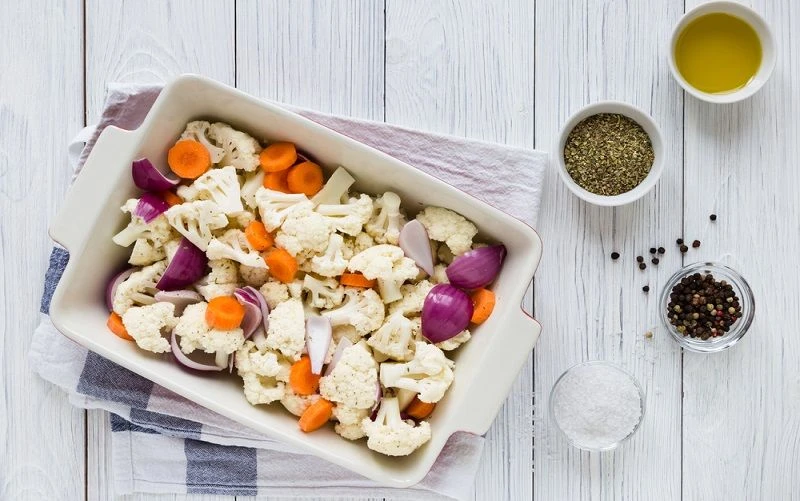
When EVOO isn’t extracted using chemicals or heat, it’s extremely high in antioxidants and fats that are undeniably beneficial to our health. Unfortunately, not all companies choose to treat their olive oil this way, so not all brands contain the following health benefits:
Despite its health benefits, olive oil is pretty high in calories, which can cause excessive weight gain if it’s used too often. If you’re a huge fan of olive oil, but not those extra pounds you keep putting on, then it might be time for you to start looking into different alternatives to olive oil. Keep reading to discover some of the best alternatives available today and how to implement them into your cooking on a daily or weekly basis!
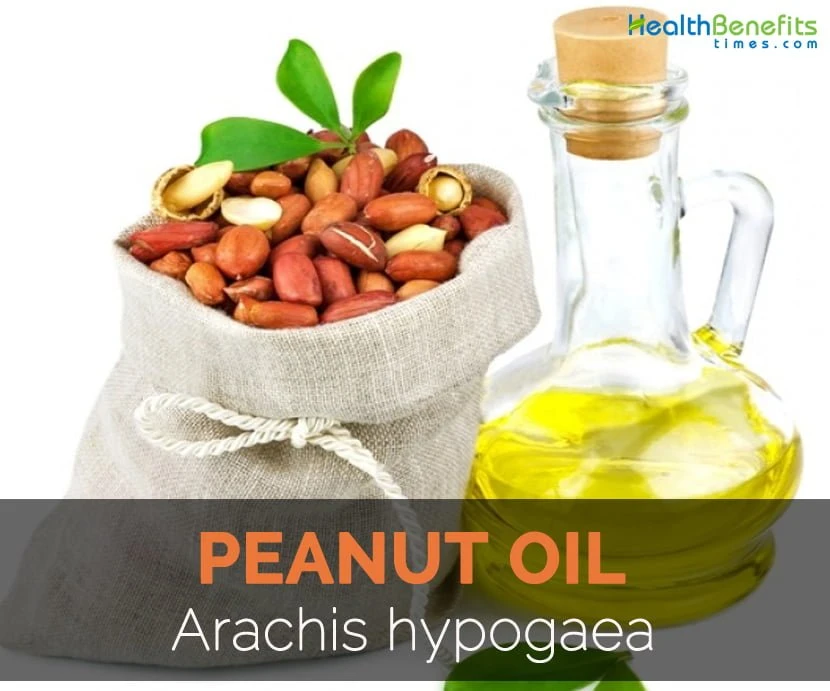
Peanut oil is light yellow in color and has a pleasantly sweet aroma and taste that people just can’t help but love. Made up of monounsaturated fats (the good fats), just one tablespoon of peanut oil contains 11 percent of the recommended daily intake of Vitamin E. Because peanut oil has a high smoke point and it doesn’t absorb the flavors of the food that it’s cooking, peanut oil is a great choice for oil when it comes to sauteing and deep-frying veggies or meat. Peanut oil is best used when it’s being added to stir-fried veggies and other Asian meals.
Ratio: 1 peanut oil to 1 olive oil
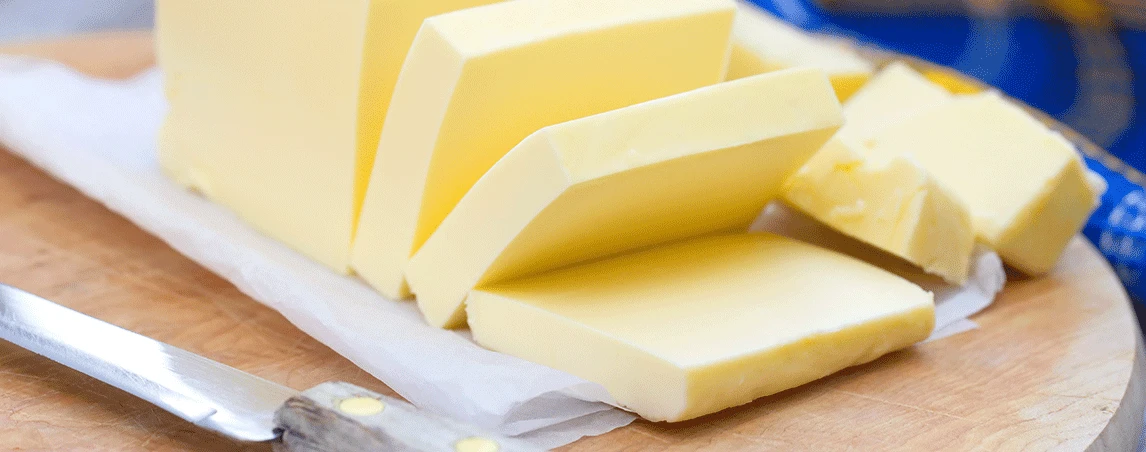
While butter has a delicious flavor and a nice creamy texture, it is absolutely full of fat-soluble vitamins A, E, and K. Butter works wonders at enhancing the flavors in food and it does an incredible job at adding a little bit of complexity to baked goods. Unfortunately, because butter has a rather low smoke point, it can burn easily, so you have to make sure that you’re paying close attention to what you’re cooking when using butter. Butter works very well when you’re using it with baked goods, such as cookies or cakes.
Cooking Ratio: 1 melted butter to 1 olive oil
Baking Ration: 4 butter to 3 olive oil
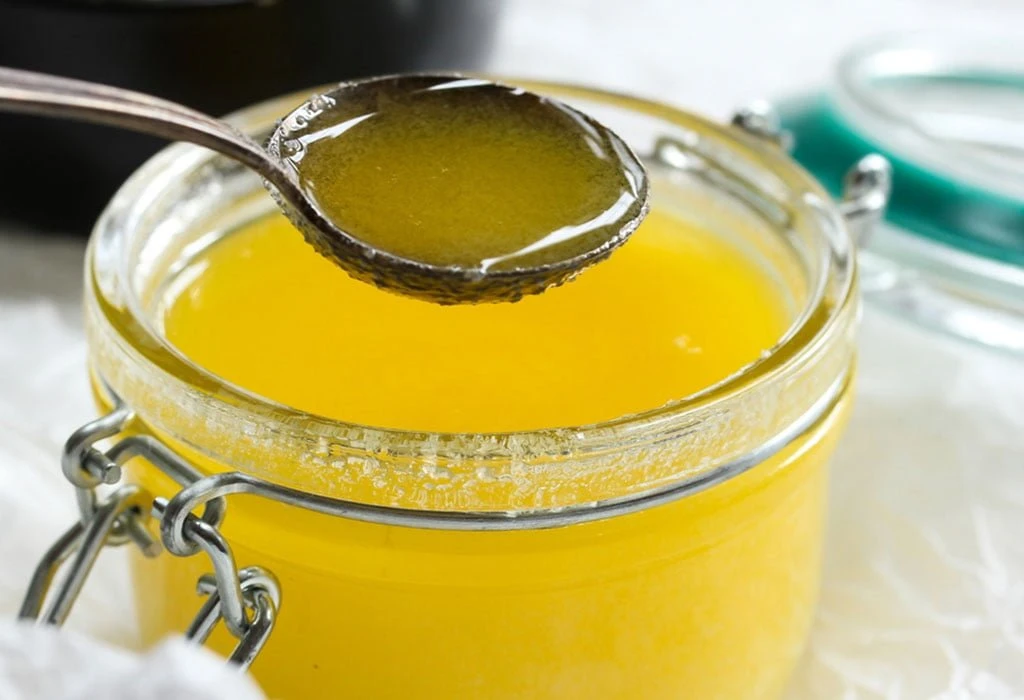
Ghee is a type of clarified butter made from cow’s milk that is typically used in Indian and Ayurvedic cooking. Ghee is characterized by its deep golden color and irresistible nutty flavor. Similar to butter, ghee melts very quickly and it adds a bit of complexity to the food that it’s being added to, which means you have to pay close attention to what you’re doing when using it. Ghee is also free of lactose and casein, contains short-chain fatty acids, has no preservatives and is high in dietary fats. Since ghee has a smoke point of 480 degrees Fahrenheit, it works well for pan-frying and baking. Ghee works best in different curries and flavoring rice.
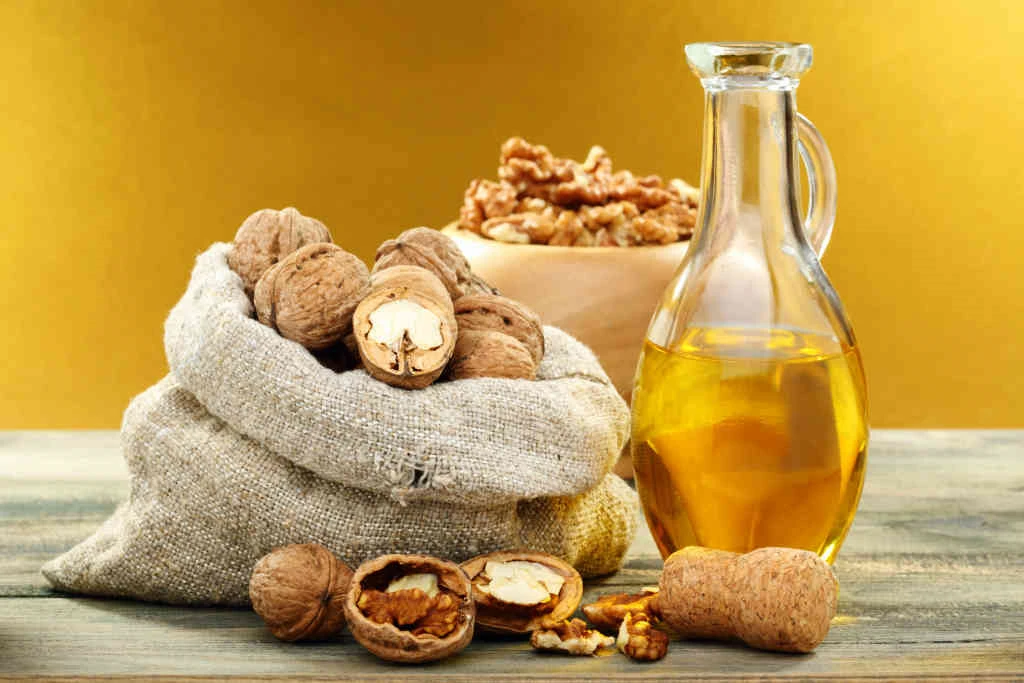
As the name suggests, walnut oil comes from walnuts that have been dried and cold-pressed. Once the process is completed, the result is a light-colored oil that has a thick consistency and a lovely nutty taste. Walnut oil is high in polyunsaturated fats, antioxidants, and omega 3’s, so it’s a great addition to your dietary intake. Walnut oil is best used when it’s tossed with pasta or drizzled on top of grilled fish before being served.
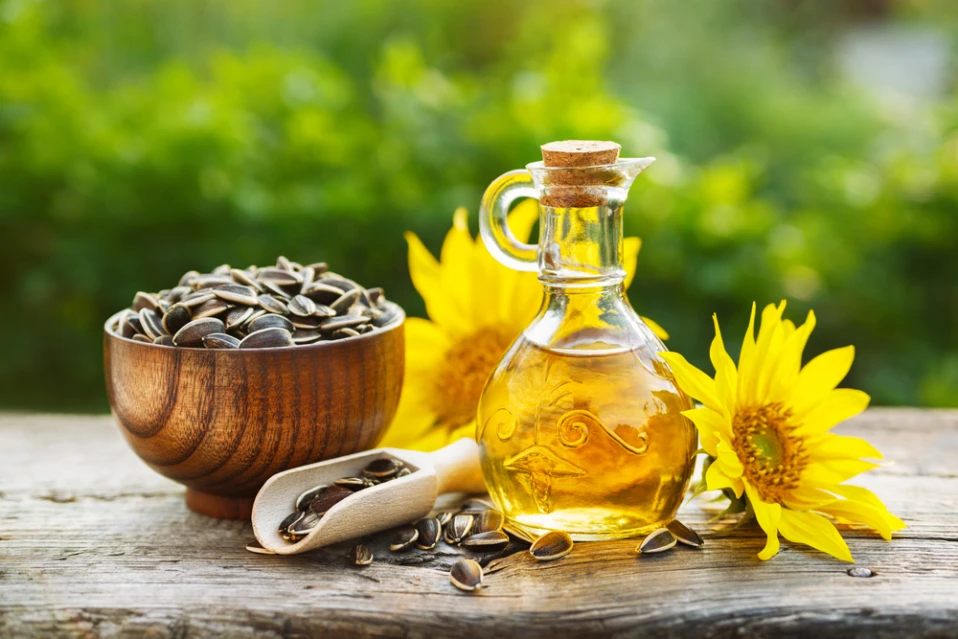
Sunflower oil is a light amber oil that is chocked full of nutrients, and as the name hints, it comes from sunflower seeds! While sunflower oil has a nice nutty taste, it contains plenty of oleic acid, vitamins K and E, phytosterols, and monounsaturated fatty acids. Needless to say, sunflower oil has an incredible number of health benefits. And considering that sunflower oil is low in cholesterol and can withstand high temperatures, it makes the perfect oil to match with steak!
Ratio: 1 sunflower oil to one olive oil
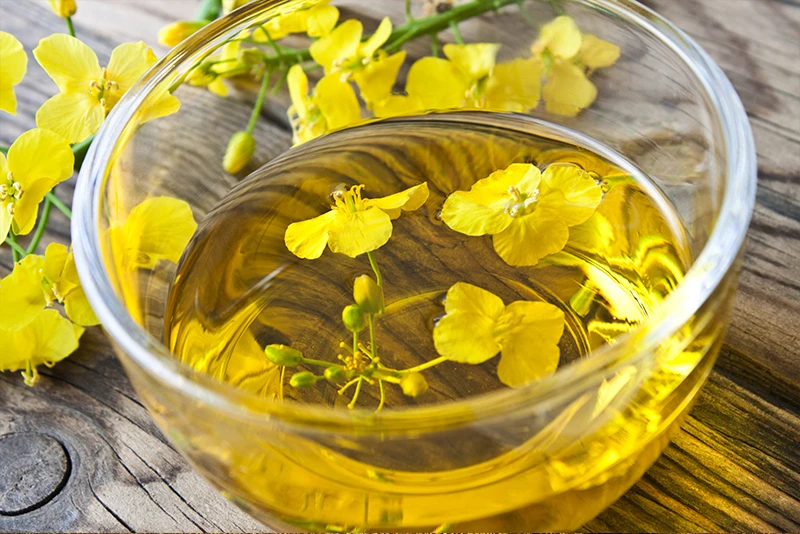
Canola oil, also known as rapeseed oil, is made from pressed canola seeds. Characterized by its smooth texture and light yellow color, canola oil is easy to point out and even easier to enjoy when it’s cooked with certain foods. Canola oil contains high levels of monounsaturated fatty acids, making it a heart-healthy option. It’s also the oil with the richest content of omega 3 fat alpha-linolenic acid! With a moderately high smoke point and affordable cost, canola oil is perfect for deep frying different foods and cooking in large quantities.
Ratio: 1 canola oil to 1 Olive oil

Despite its name, vegetable oil generally contains a mixture of several different oils, including canola and soybean oil. Even though it’s relatively inexpensive and a decent source of vitamin E, vegetable oil is pretty high in saturated fats. Because of its neutral flavor and smoke point of 440 degrees Fahrenheit, vegetable oil works best when you’re doing high-temperature cooking. Because of the high content of saturated fats, vegetable oil should be used in moderation.
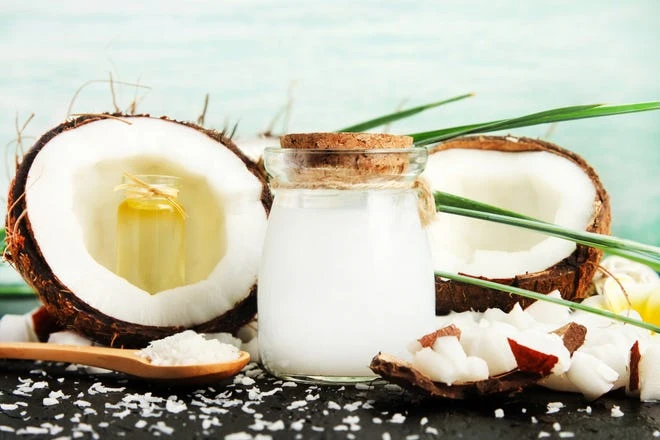
Considering the fact that coconut oil only contains 117 calories per tablespoon, it’s the perfect alternative to olive oil when you don’t want the extra pounds that come with it. Because coconut oil is a medium-chain saturated fat, it’s metabolized much faster than other saturated fats. It’s also absolutely loaded with antioxidants. You can purchase coconut in two different ways: refined and unrefined coconut oil.
Refined coconut oil has a smoke point of 350 degrees, so it’s best when it’s used in baking and sauteing. The unrefined version, also known as virgin coconut oil, hasn’t been processed as much as refined coconut oil and it has a higher smoke point so it’s best to be used when frying food. Because of the slightly nutty flavor associated with coconut oil, it pairs well with sweet and savory dishes.
Ratio: 1 coconut oil to 1 olive oil
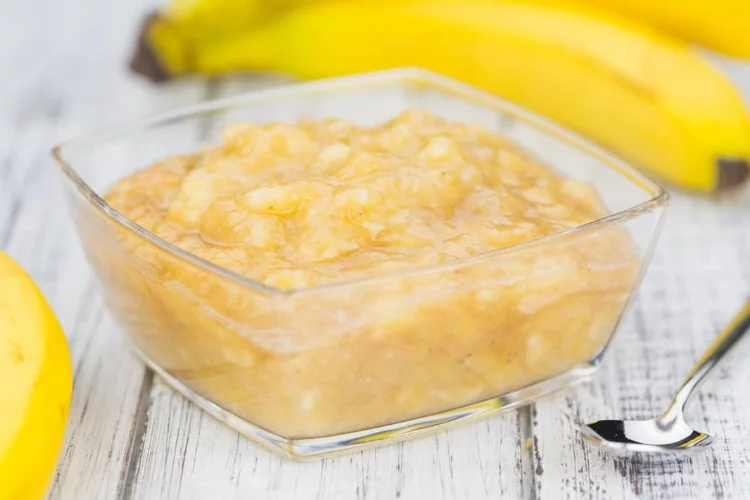
Known for their high levels of potassium and fiber, bananas are also used for their ability to regulate blood sugar and improve heart health. As odd as it might be, bananas also make a great substitute for olive oil because of its smooth texture. While it’s typically paired with baking, mashed bananas can substitute olive oil in dishes where the banana taste will complement the other ingredients being used!
Ratio: 1 banana to 2 olive oil
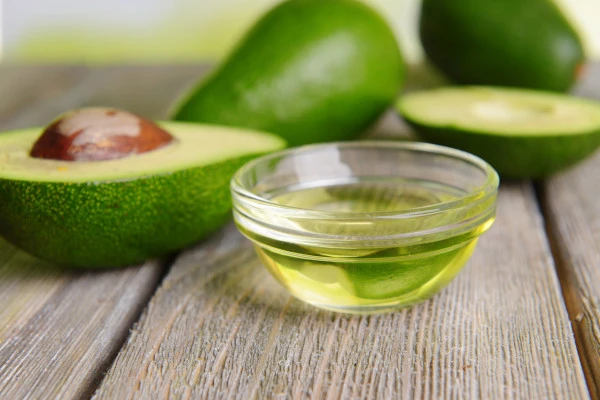
As you’ve probably heard in the recent past, avocado has an incredible number of health benefits associated with it, which is why avocado has become a bit of a fad as of late. Considering that avocado oil is rich in oleic acid, which is great for your heart, avocado oil makes a great substitute when you want to kick up your health game. Because olive oil has a high smoke point, it works great when it comes to grilling and roasting.
Ratio: 1 avocado oil to 1 olive oil
As you can clearly see, there are plenty of affordable options if you’re looking to substitute the olive oil you use all of the time. Of course, you should look further into the options to figure out how to use them properly. After all, you wouldn’t want to use mashed bananas when you’re making steak for your father-in-law. With that being said, try out some of these options and you may just find an oil that you like much better than olive oil!
 |
 |
 |
 |
 |
 |
 |
 |

About Daisy Dao
Daisy grew up on the beautiful Honolulu island where she often found herself spending most of her day enjoying the ocean scent in sea waves. As such, Daisy came to appreciate the art of cooking seafood. She has experimented with baking, roasting, broiling, poaching, grilling (and every other cooking technique you can think of); and with all kinds of spices too. Now she is ready to present her experience: the art of cooking healthy food without any pre-packaged ingredients; food product recommendations for people who need a bit more guidance on what goes into their bodies; how to maintain an active lifestyle without having to give up your favorite foods!
Check for FREE Gifts. Or get our Free Cookbooks right now.
Disable the Ad Block to reveal all the recipes. Once done that, click on any button below
 |
 |
 |
 |